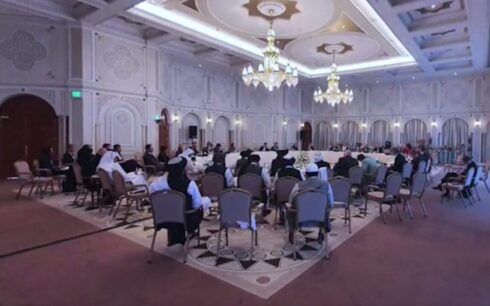KABUL, Afghanistan — As Afghans mark Eid al-Fitr, the Afghanistan Freedom Front and the National Resistance Front — two of the most prominent anti-Taliban fronts — issued separate Eid messages on Sunday, urging citizens to use the occasion as a moment to renew their commitment to justice, freedom, and national solidarity.
The fronts called for intensified resistance against what they described as the Taliban’s “repressive regime” and called on the international community to end financial support that, they claimed, “funnels into the Taliban’s coffers and fuels terrorism under the guise of humanitarian aid.”
“Eid must not become a hollow ritual overshadowed by oppression,” the Afghanistan Freedom Front said in its statement. It framed resistance as a “historic, national and legitimate duty,” and announced that its military operations — temporarily paused during the holy month of Ramadan — would resume following the holiday.
The AFF warned civilians to avoid Taliban-linked facilities and personnel, labeling them “legitimate military targets.”
The National Resistance Front echoed similar sentiments in its statement, which was addressed to “the free people of Afghanistan,” including the families of fallen fighters. It described resistance as “the highest form of worship” and called standing for justice “the most honorable moral and human commitment.”
Both fronts expressed hope that the holiday would become a turning point in unifying those opposed to Taliban rule. They also criticized the Eid message delivered by Taliban leader Hibatullah Akhundzada, describing it as “a fundamentalist and populist misrepresentation of religion.”
The Afghanistan Freedom Front emphasized that Akhundzada’s message, which claimed national security had been achieved, stood in stark contrast to “widespread reports of extrajudicial killings of former security officials, human rights abuses, and the systematic repression of women” — abuses documented by both Afghan and international media.
The dueling narratives underscore Afghanistan’s deepening polarization, as resistance fronts attempt to revive momentum and the Taliban seek to project strength and stability in the face of growing domestic and international criticism.





